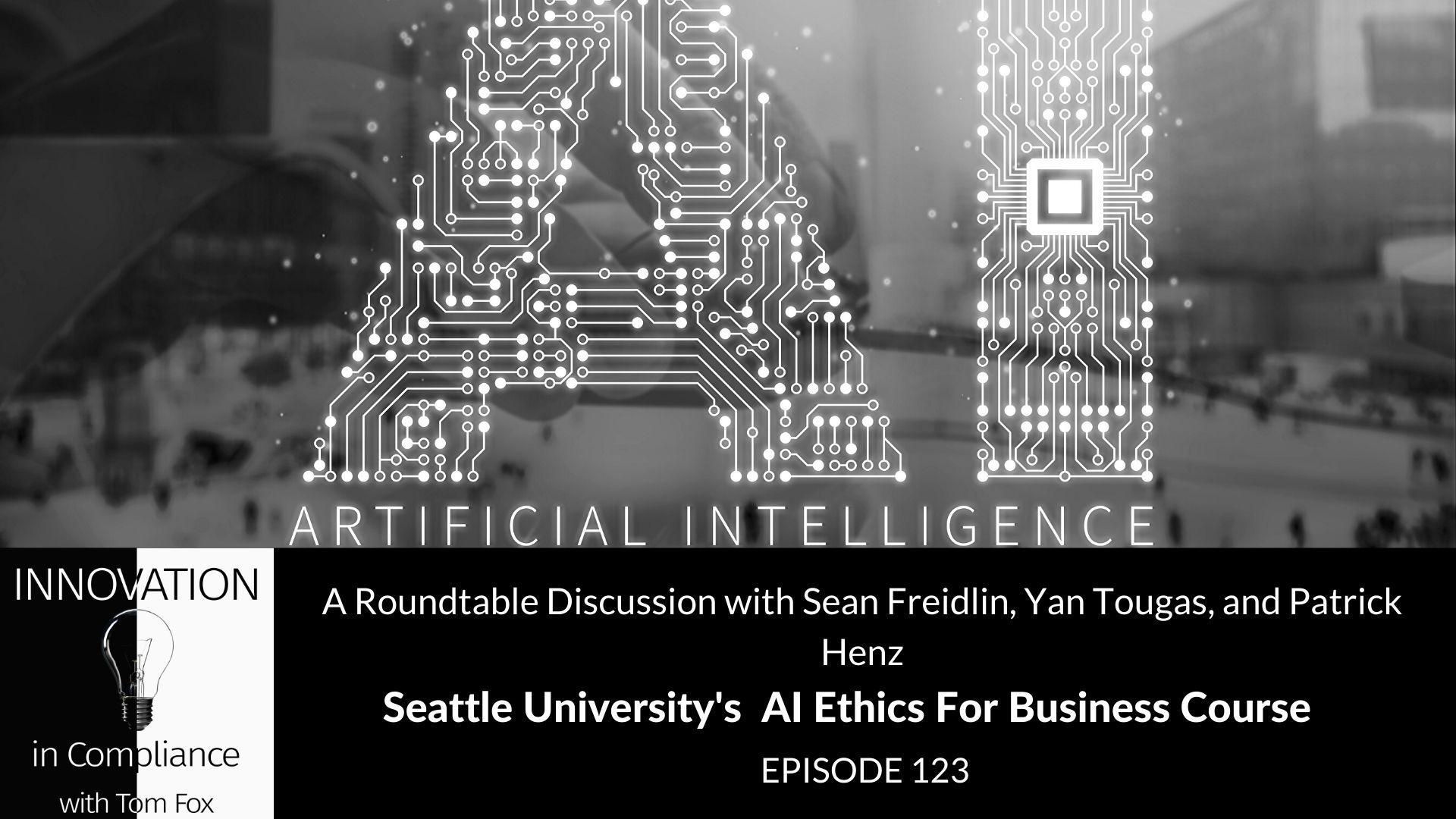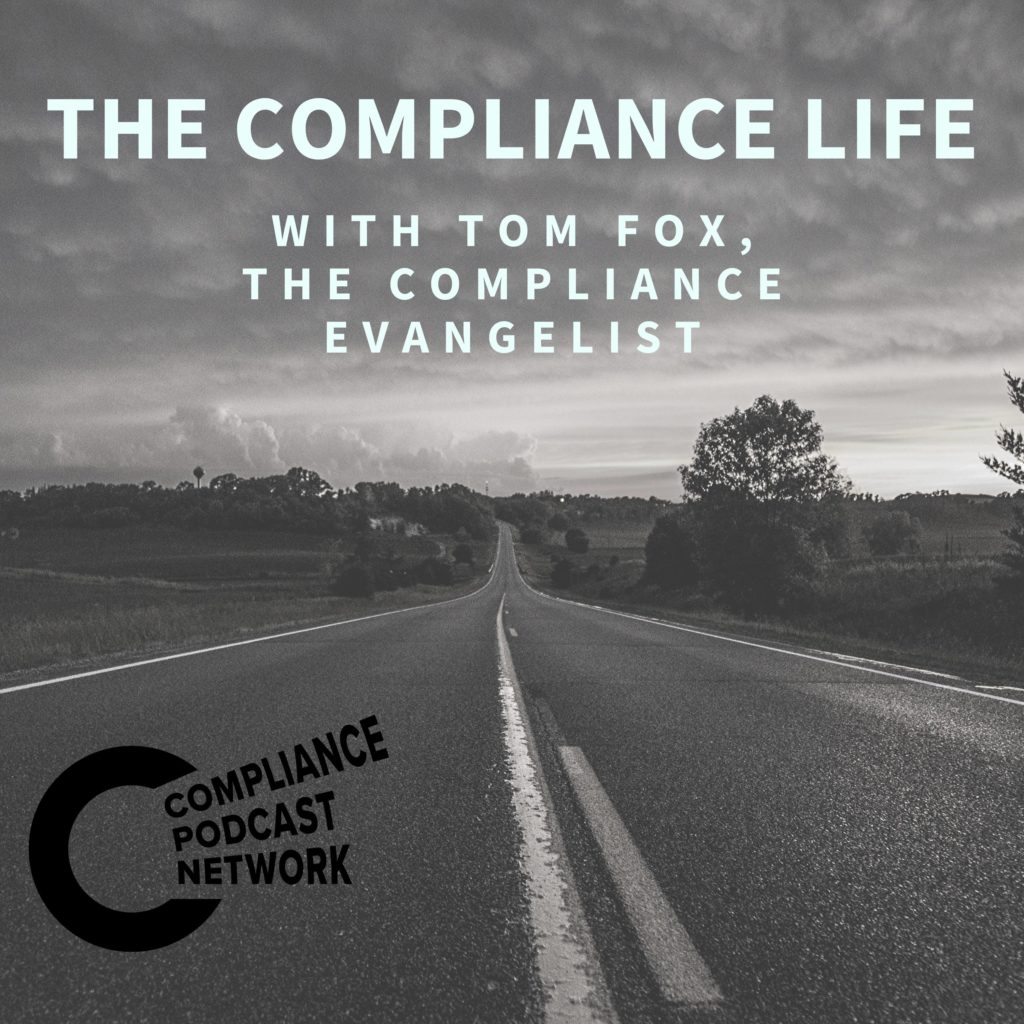
In this week’s Innovation In Compliance show, Tom Fox, together with guests Sean Freidlin, Yan Tougas and Patrick Henz, have a roundtable discussion about their experience with taking Seattle University’s free course, AI Ethics For Business. They chat about what they felt were the highlights of the course, as well as the opportunities for improvement.
Patrick Henz
Patrick likes how trainers from different disciplines work together as a team to present the course. He suggests that this interdisciplinary approach could be used by companies for compliance training, since compliance is becoming more of an integrated function, mainly due to budgetary constraints. Patrick emphasizes the importance of continuous learning: the world is changing so quickly that we cannot rely solely on our university training to keep abreast.
The topic of robotic process automation was missing from the course, Patrick thinks. He believes that psychology and ethics, topics discussed in the first module, are relevant for all compliance practitioners. He comments, “We’re not only here to identify the bad employees but furthermore to protect the good employees, which includes protecting them against themselves…”
Yan Tougas
Organizations using and/or creating AI must create their own set of governing values and principles from the outset, Yan points out. Two of those values should be transparency and agency. “If we are going to use AI to make some critical decisions about people’s welfare,” Yan says, “…we need to create room in the process for a human to make a final decision.” He points out that the pressure to rush to market is one reason companies do not create their own values and principles around AI. “We need to be extra careful and make sure that we don’t let this pressure to get to market and this pressure to adopt AI blind us from the homework we need to do up front,” he comments.
Yan appreciates the Operational Readiness document in Module Three, which he describes as a practical tool compliance practitioners can use. On the other hand, he thinks that the user interface and the quizzes at the end of each module could be improved.
Sean Friedlin
Sean finds it refreshing that a large corporation such as Microsoft has partnered with Seattle University to create free training for the public good. He hopes that more companies would embrace these types of partnerships in the spirit of corporate social responsibility. Sean sees this as the emergence of a deeper commitment to ethics as AI develops. He notes with interest that the Vatican has joined in this conversation.
Sean poses two interesting questions:
- What impact will COVID-19 have on AI advancement?
- What makes a good online learning experience?
Having the subject matter experts as narrators and anchors throughout the course establishes their credibility; Sean views this as a pattern other course creators should follow. He finds the course content too text-heavy, however, and the UI design mobile unfriendly.
Tom Fox
The exercise emphasized for Tom the need for companies to start with ethical values and accountability for the entire organization. You cannot simply ask those involved with these cutting-edge questions to be the sole corporate repository of ethical and moral values, he argues. Put these values in place now, enshrine them throughout your organization so when the
business opportunity or a crisis arrives, you would already have the framework in place to make a decision aligned with your company values.
The course is a good reminder to consider governance and structure as part of your compliance regime, Tom comments. It was a positive experience overall; however, it may not work for ongoing communications or training due to time.
Resources
Seattle University course- AI Ethics for Business
Rome Call for AI Ethics
Rome Call
Vatican joins IBM, Microsoft to call for facial recognition regulation




